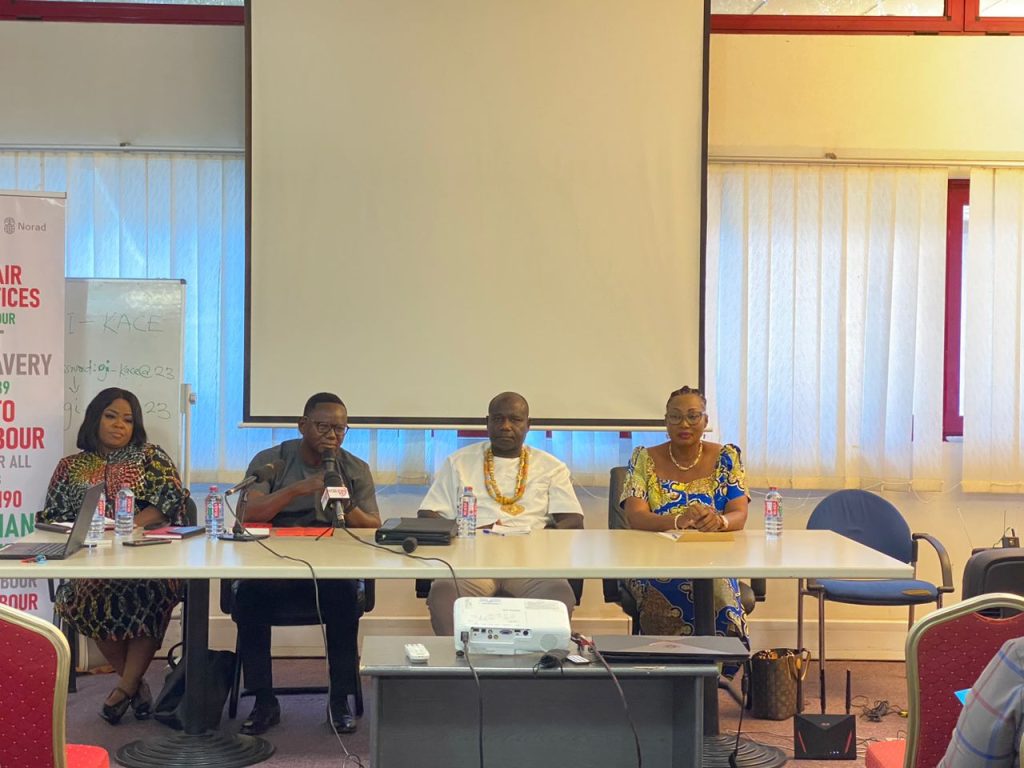By Edward Dankwah
Accra, Sept 20, GNA – Madam Eugenia Ayishetu Ayagiba, Women’s Right and Campaigns Manager, ActionAid Ghana, has called on the government and stakeholders to provide resources to relevant agencies to help fight modern slavery in Ghana.
She said the agencies were scarcely resourced, such that they could not deliver their mandate efficiently and effectively, hence, the need for the support on time to fight the menace.
Madam Ayagiba made the call at a national dialogue organised by the General Agricultural Workers’ Union of Trade Union Congress-Ghana (GAWU TUC-GH), on the theme, “3 years of working together to combat modern slavery in Ghana, our success and challenges” in Accra.
The project is implemented by ActionAid Ghana and GAWU, with funding from the Norwegian Agency for Development Cooperation (Norad).
She said, “one of the things the government should also do is to increase the number of shelters for more people, who are rescued will be sent there.”
The Campaigns Manager said ActionAid in partnership with GAWU had been able to develop the Anti-Modern Day Slavery Index (AMDSI), where businesses were supposed to use the index to monitor, evaluate and score themselves on how they were performing in the fight.
“Through the project, we have been able to establish the Police Command Unit at the Oti Region for the Police to aid them, because that region is noted for fishing, farming, child labour, amongst others,” she added.
She said they had rescued about 15 children from child trafficking, both in Ghana and Nigeria, and reintegrated the same to their families and communities.

Dr Anthony Yaw Baah, Executive Secretary, TUC-GH, said the Sustainable Development Goal 8, identified child labour, forced labour, human trafficking and modern slavery as critical factors threatening the achievement of decent work and economic growth in many countries.
He said, “and for us as trade unions, our core mandate is to promote decent work by ensuring that all women and men work in conditions of freedom, equity, security and human dignity, therefore, anything that threatens the achievement of decent work needs our intervention.”
The Executive Secretary said figures from 2021 indicated that 50 million people were living in modern slavery globally, and of these people, 28 million were in forced labour and 22 million were trapped in forced marriage.
“In Ghana, child labour remains a huge issue for all of us. Forced labour is equally a huge concern in its various forms, be it threats of violence, dismissal, payment of slave wages, delayed wages among others,” he added.
Dr Baah said a review of the labour law would provide more comprehensive grounds in addressing some of these related matters, and therefore called on all stakeholders to join the TUC as it called on the government to fast track the review of the labour law.
He said the Unions had contributed extensively to creating awareness in many communities across the country especially on issues of child labour, adding that they had used the outcomes to develop areas for advocacy and sensitisation, media programming and development of campaign materials.
The Executive Secretary said the modern slavery programme had made Trade Unions more visible to stakeholders and added new knowledge, and that the recognition of the role of trade unions as key partners in combating modern slavery was worth mentioning.
Chief Superintendent Mike Baah, Director of Anti-Human Trafficking Unit at the Ghana Police Service, urged the Ghanaians to help prevent these acts, rather than prosecution, adding that, “not all that glitters is gold.”
GNA